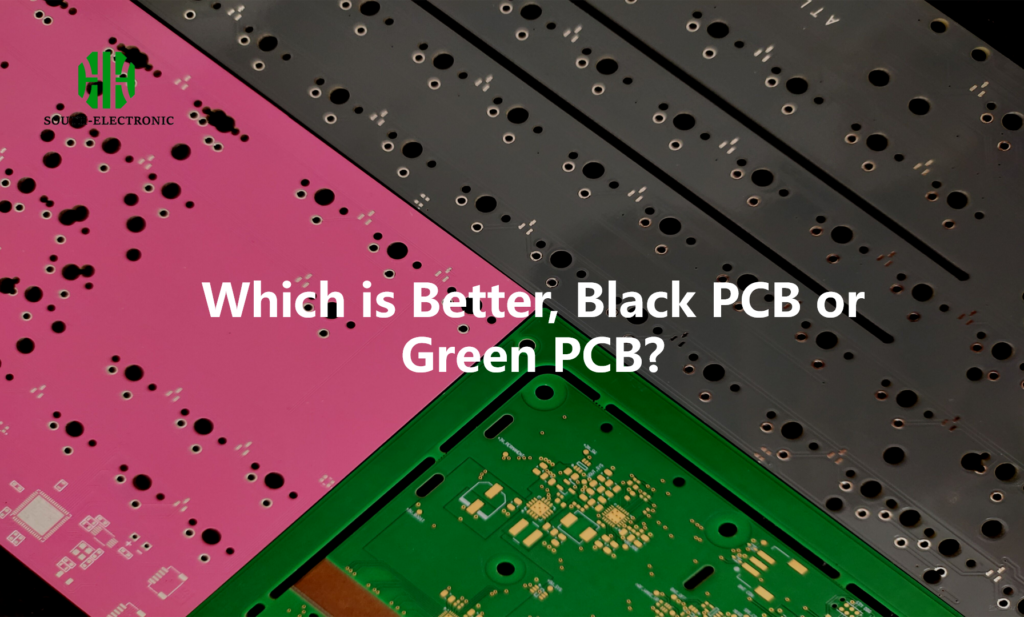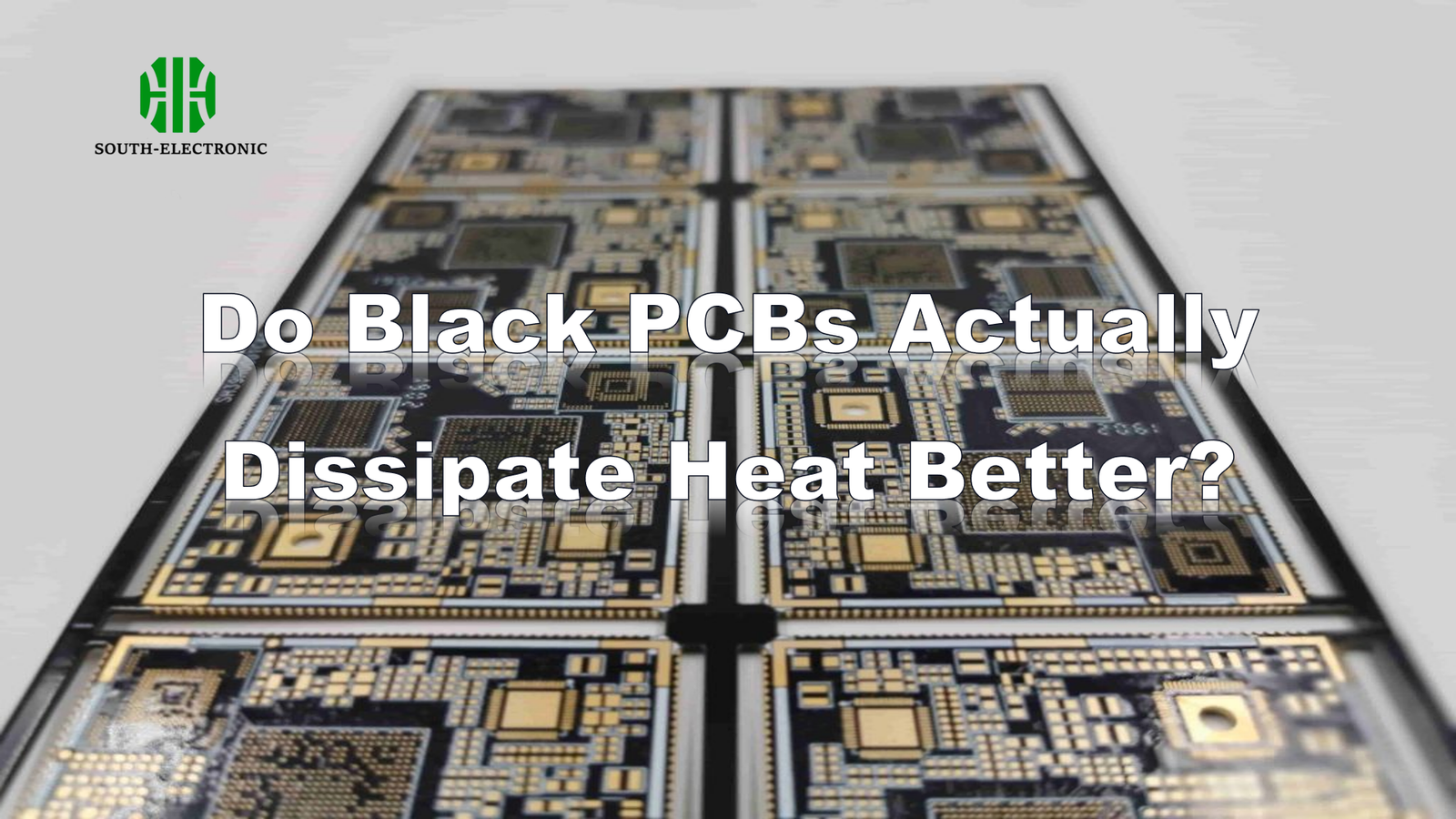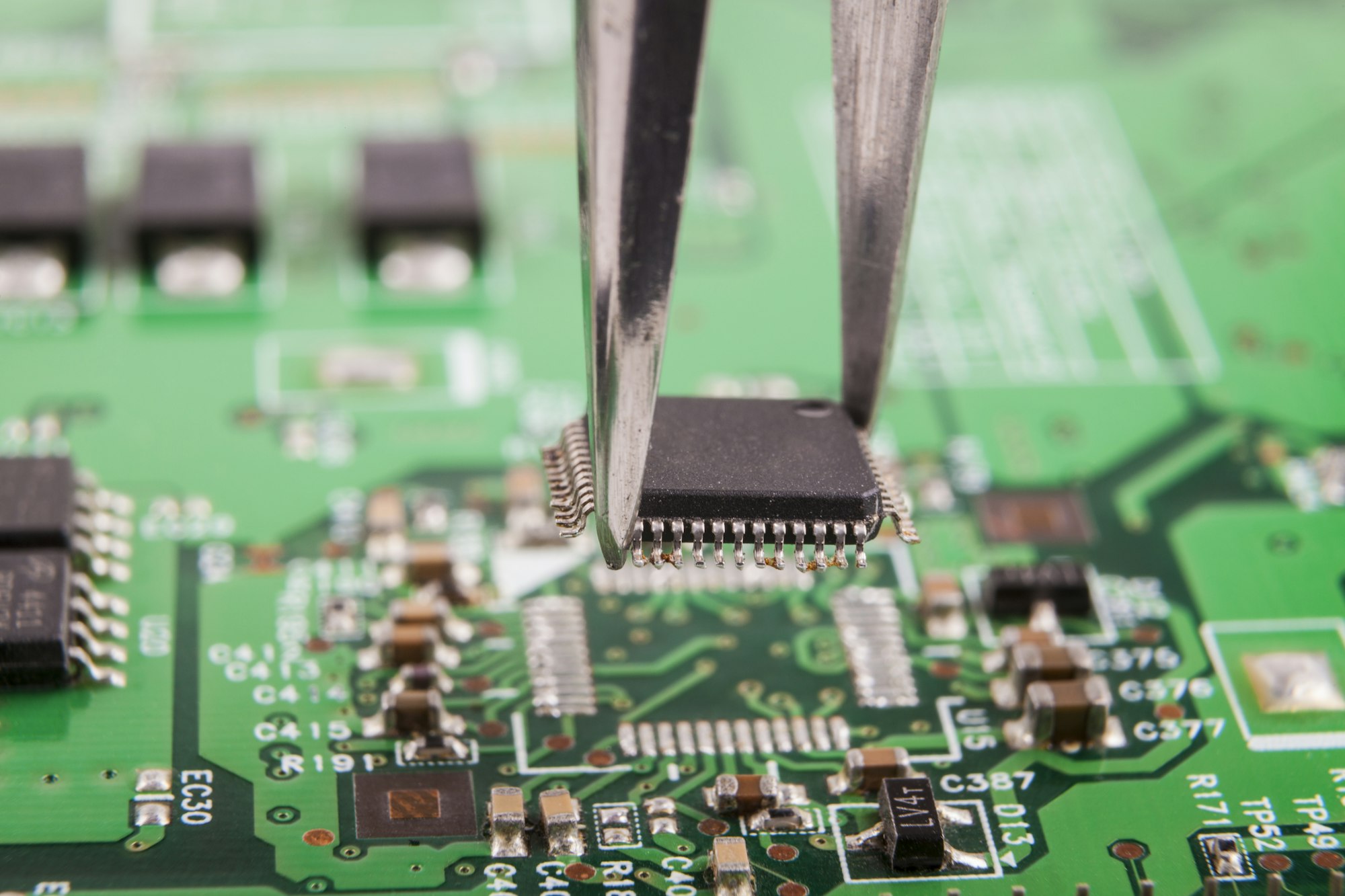Ever heard black PCBs run cooler? I believed this too as a hobbyist. The myth seems logical at first glance. But let me show you what really matters for heat control.
Black PCBs don’t improve heat dissipation through color! Thermal performance depends 100% on material quality, circuit design, and copper thickness – not paint darkness. Focus on laminate type and heatsinks instead.

Now we know color isn’t a cooling solution. You might wonder why black PCBs even exist with these limitations. Let’s explore their manufacturing realities and practical use cases.
Why are black PCBs trickier and more expensive to manufacture?
Imagine painting with ultra-dark ink. Now imagine doing it on a circuit board with precision requirements. One mistake ruins the whole panel. That’s why black PCBs frustrate factories daily.
Black solder mask requires stricter manufacturing controls than standard green. Pigment consistency affects light exposure during photolithography. Darker masks also show defects more visibly, increasing rejection rates.

Manufacturing Process Comparison
Black PCBs undergo the same core production steps as other colored boards, but with tighter tolerances:
| Production Stage | Green PCB Tolerance | Black PCB Tolerance | Impact |
|---|---|---|---|
| Solder Mask Application | ±5% thickness variation | ±2% thickness variation | Rejects thin-coated boards |
| UV Exposure | Medium sensitivity | High sensitivity | Requires cleaner rooms |
| Defect Detection | 3% visual inspection | 8% visual inspection | More time per board |
First, the black pigment blocks UV light differently during imaging. This needs exact exposure calibration. Second, tiny scratches become more visible on dark surfaces. We then have to inspect each board more carefully. Last, thicker ink layers must be achieved without blocking fine features. These extra controls cost 15-30% more than green boards. Still, manufacturers accept these challenges for premium products where appearance matters.
Which is better, black PCB or green PCB?
You might think one color has technical advantages. I did too before designing circuits professionally. After thermal tests, my charts revealed surprising truth. Functionality beats fashion here.
Black and green PCBs perform identically under measured conditions. Color doesn’t affect signal integrity or thermal behavior. Green wins in practicality with easier troubleshooting and lower costs. Black offers aesthetics at a price premium.

Practical Usage Differences
Here’s a real-world comparison based on my engineering projects:
| Performance Factor | Green PCB | Black PCB | Verdict |
|---|---|---|---|
| Troubleshooting | Clear contrast with components | Lower contrast | Green advantage |
| Prototype Cost | $8 per board | $12 per board | Green cheaper |
| Heat Management | Matte finish | Matte finish | Same performance |
| Technical Merits | Industry standard | No functional gain | Neutral |
Green PCBs create higher component visibility during testing. Resistor markings and trace paths become clearer. For thermal performance, both colors show nearly identical measurements in identical setups. The main difference is how they look. Green costs less for DIY builds. Black works for final products needing sleek appearance. I always prototype with green during debugging. Black only gets specified for customer-facing electronics.
What types of electronic products are black PCBs commonly found in?
Look inside a fancy gaming laptop at midnight. That moody board isn’t chosen by accident. I’ve designed products using black PCBs solely for psychological impact. Market teams swear this color shifts perceptions.
Black PCBs primarily appear in high-visibility electronics where aesthetics boost sales. They’re common in gaming hardware, luxury audio gear, and flagship smartphones. The color creates premium visual associations despite identical performance to green PCBs.

Common Applications
Based on product teardowns I’ve performed:
| Product Segment | Why Black PCB? | Example Products | Real Purpose |
|---|---|---|---|
| Gaming Hardware | "Stealth" look | RGB motherboards | Visual theme integration |
| Premium Audio | Luxury appearance | $5000 amplifiers | Perceived value boost |
| Flagship Phones | Marketing appeal | Latest iPhones | High-end branding |
| Automotive Displays | Interior matching | Dashboard panels | Cosmetic consistency |
Gaming graphics cards often use black PCBs with RGB lighting for dramatic effect. In high-end audio, they help justify premium pricing through visual cues. Flagship smartphones hide components better during teardowns with dark boards. Automotive systems match interior black trims. But here’s the key: I’ve stress-tested these against green equivalents and found zero performance difference. The use case is always psychological impact, never technical benefit.
Conclusion
Black PCBs don’t cool circuits better – the color is only cosmetic. They cost more due to manufacturing challenges but enhance premium electronics visually. Choose based on aesthetics and budget, not heat myths.



